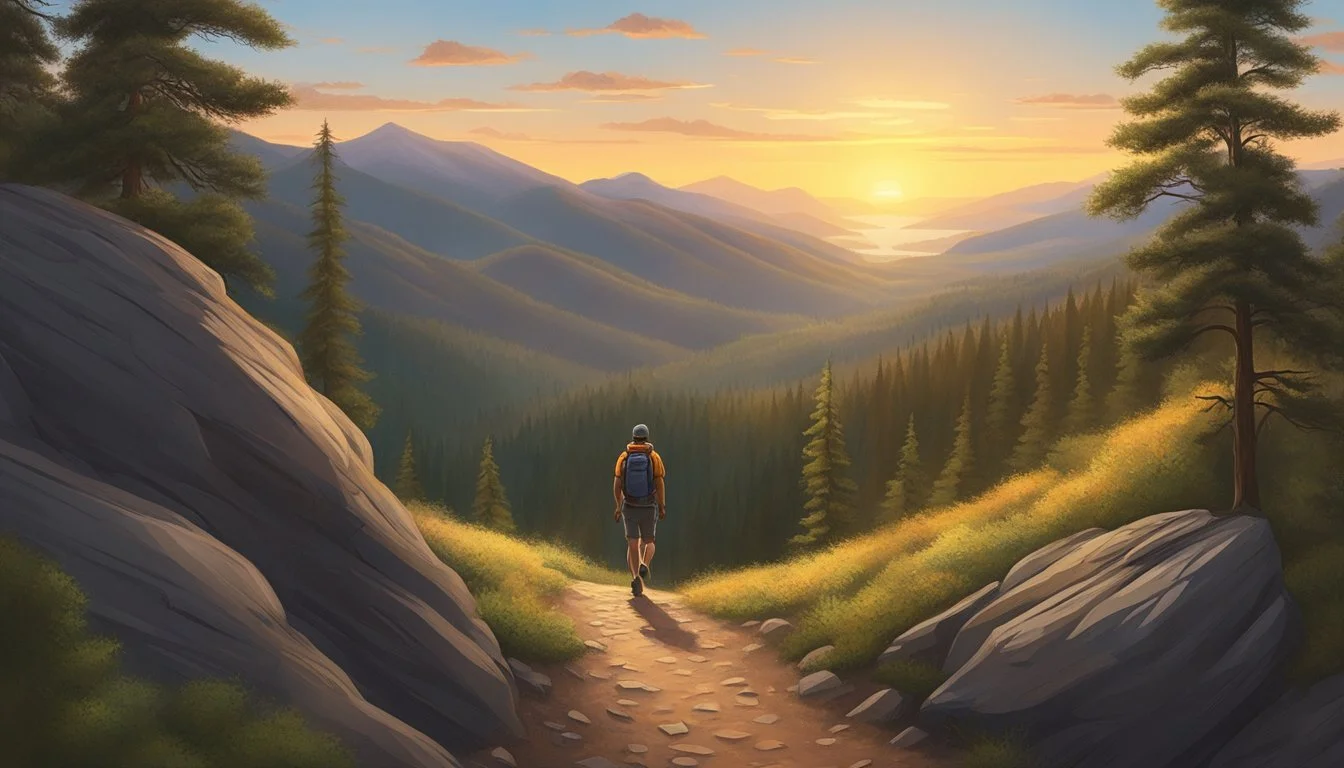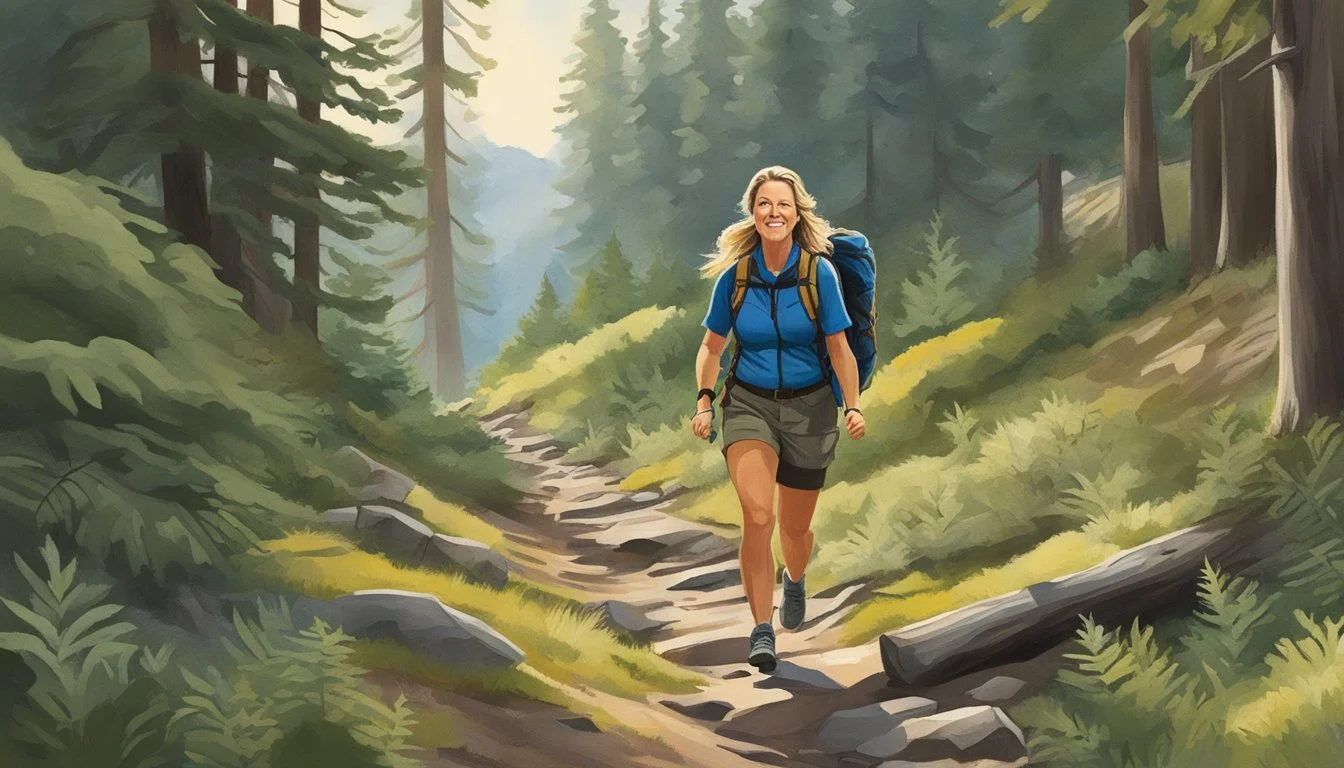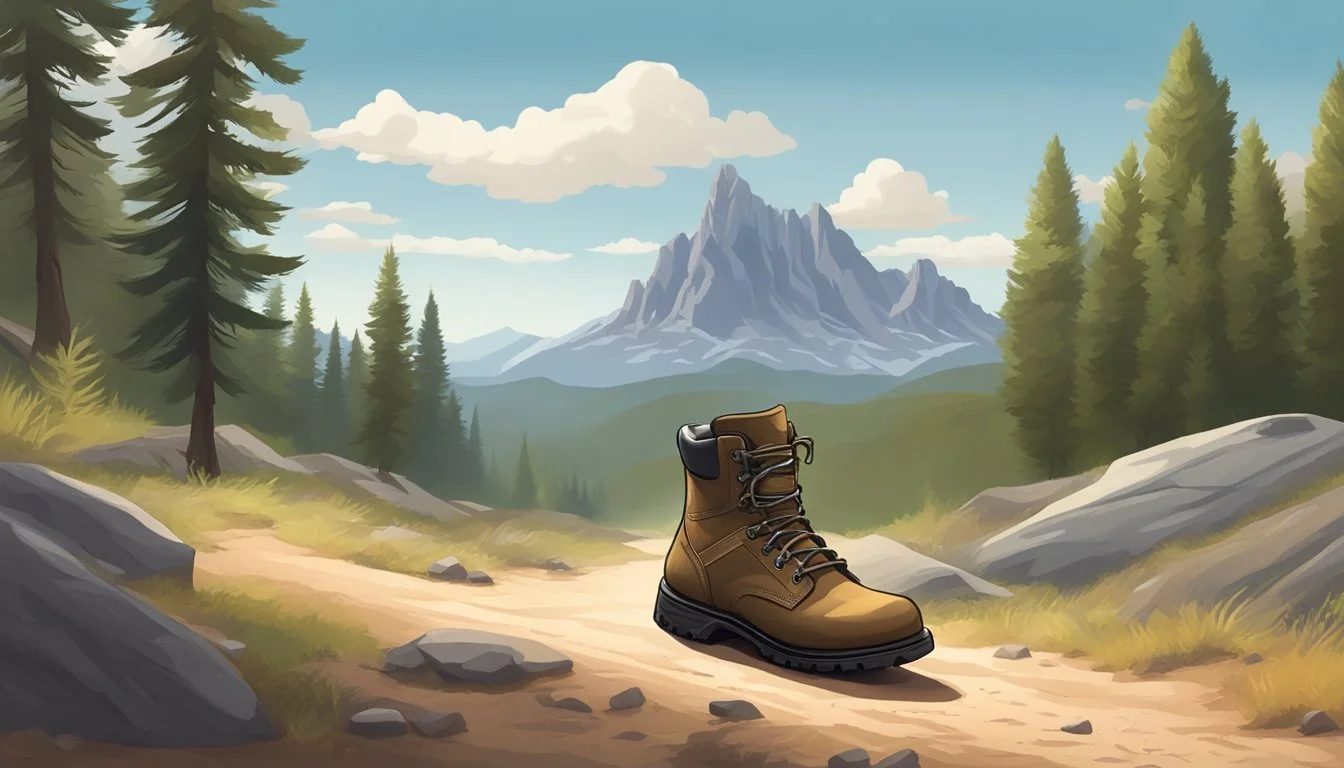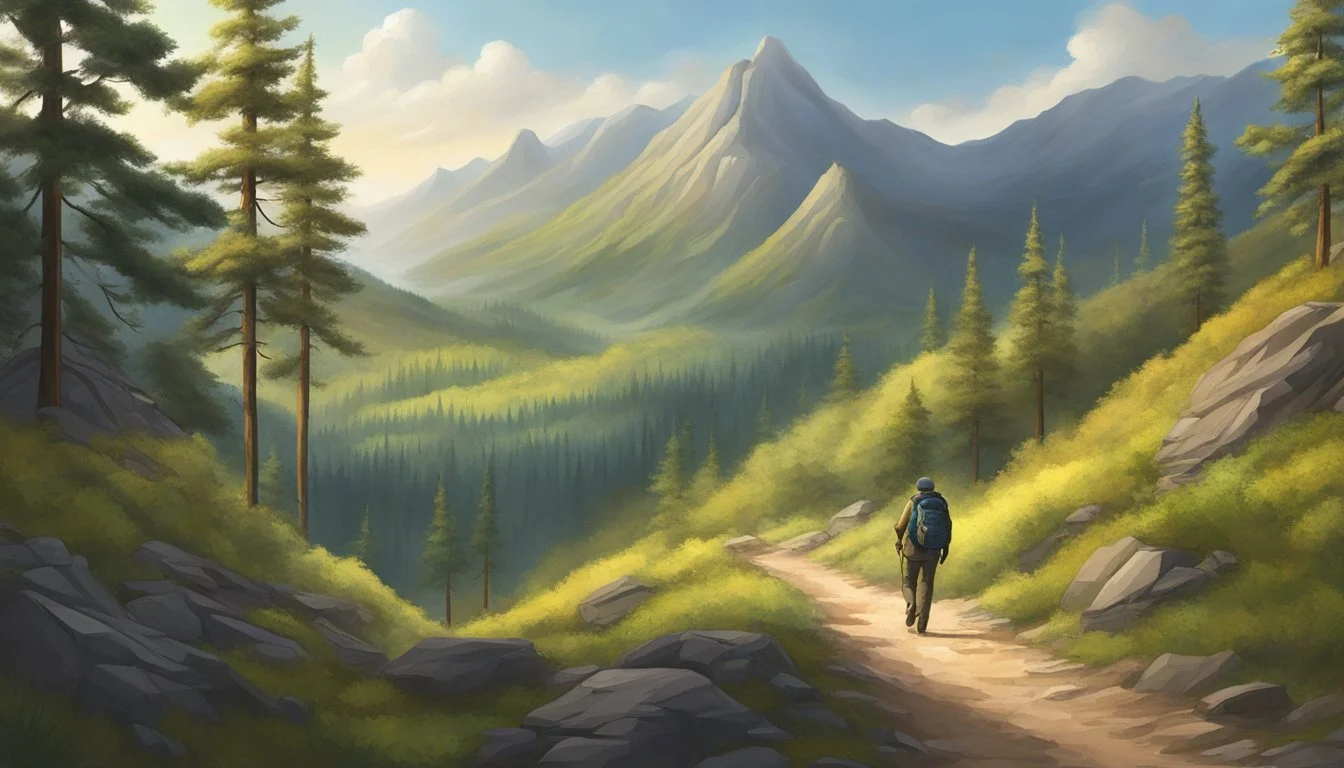Hiking to Heal: Cheryl Strayed's Transformative Trek Along the Pacific Crest Trail
Cheryl Strayed's 1,100-mile hike along the Pacific Crest Trail in 1995 became the basis for her memoir "Wild." At 26 years old, she embarked on this transformative journey with no prior backpacking experience. The trek from the Mojave Desert in Southern California to the Bridge of the Gods in Oregon served as a path to healing and self-discovery for Strayed.
Strayed's decision to hike the Pacific Crest Trail came after a series of personal hardships. She had lost her mother to cancer, separated from her husband, and struggled with drug use. The physical and mental challenges of the trail provided an opportunity for Strayed to confront her grief and reassess her life choices.
"Wild" details Strayed's experiences on the trail, from the practical difficulties of carrying a heavy backpack to the emotional weight of her past. The memoir resonated with readers, offering insights into the healing power of nature and the strength of the human spirit in the face of adversity.
Cheryl Strayed: A Portrayal of the Author
Cheryl Strayed's journey from personal tragedy to literary success is marked by resilience and self-discovery. Her experiences shaped her unique voice as a writer and advice columnist.
Biography and Early Life Challenges
Born in 1968 in Pennsylvania, Cheryl Strayed faced significant hardships early in life. Her father was abusive, leading to her parents' divorce when she was six. At 13, she moved to rural Minnesota with her mother, stepfather, and siblings.
Tragedy struck when Strayed was 22 - her mother died of lung cancer. This loss profoundly impacted her, sending her into a spiral of grief and self-destructive behavior. She experimented with heroin and engaged in extramarital affairs, which led to the end of her first marriage.
From Personal Struggles to Writing 'Wild'
In 1995, at age 26, Strayed embarked on a transformative 1,100-mile solo hike along the Pacific Crest Trail. This grueling journey became the basis for her memoir "Wild: From Lost to Found on the Pacific Crest Trail," published in 2012.
The book chronicles her physical challenges on the trail and her emotional journey through grief and self-discovery. "Wild" became a #1 New York Times bestseller and was adapted into a film starring Reese Witherspoon.
Strayed's raw honesty and vivid storytelling in "Wild" resonated with readers worldwide, establishing her as a powerful voice in contemporary literature.
Literary Contributions and 'Dear Sugar'
Beyond "Wild," Strayed has made significant contributions to literature and advice writing. She authored the novel "Torch" and the essay collection "Tiny Beautiful Things."
Strayed gained a devoted following as the anonymous author of the "Dear Sugar" advice column on The Rumpus website. Her compassionate, insightful responses to readers' dilemmas showcased her empathy and wisdom.
The popularity of "Dear Sugar" led to a book compilation and a podcast, further cementing Strayed's role as a trusted voice for those seeking guidance and understanding.
The Essence of 'Wild': Unpacking the Memoir
Cheryl Strayed's 'Wild' recounts a transformative 1,100-mile hike on the Pacific Crest Trail, exploring themes of grief, self-discovery, and personal growth. The memoir's raw honesty and vivid storytelling captivated readers and critics alike.
Synopsis of 'Wild'
In the summer of 1995, 26-year-old Cheryl Strayed embarked on a solo hike along the Pacific Crest Trail. Her journey began in the Mojave Desert and ended at the Bridge of the Gods in Oregon. Strayed, a novice backpacker, undertook this challenging trek following personal hardships, including her mother's death and a divorce.
The memoir details Strayed's physical and emotional struggles on the trail. She faced blistered feet, harsh weather conditions, and encounters with wildlife. Throughout the hike, Strayed reflected on her past and confronted her inner demons.
Themes of Healing and Transformation
'Wild' explores profound themes of loss, redemption, and personal growth. Strayed's journey serves as a metaphor for her internal healing process. The physical challenges of the hike parallel her emotional struggles, allowing her to process her grief and find strength.
The memoir highlights the transformative power of nature and solitude. As Strayed pushes her physical limits, she discovers inner reserves of resilience. The trail becomes a space for self-reflection and forgiveness, enabling her to move forward from past mistakes and sorrows.
Strayed's experiences on the PCT mark her transition into adulthood, as she learns to rely on herself and find hope in the face of adversity.
Literary Style and Narrative Technique
Strayed's writing style in 'Wild' is direct, honest, and introspective. She alternates between vivid descriptions of her hike and flashbacks to her past, creating a narrative that weaves together her present journey and personal history.
The author's candid approach allows readers to connect deeply with her experiences. Strayed doesn't shy away from revealing her flaws and vulnerabilities, lending authenticity to her story.
Her prose is both lyrical and raw, capturing the beauty of the landscape and the intensity of her emotions. This balance of poetic description and stark honesty contributes to the memoir's powerful impact on readers.
Dissecting the Pacific Crest Trail
The Pacific Crest Trail stretches through diverse landscapes and presents unique challenges to hikers. It offers opportunities for personal growth and transformation through immersion in nature.
Geographic and Cultural Overview
The Pacific Crest Trail spans 2,650 miles from Mexico to Canada. It passes through California, Oregon, and Washington, traversing deserts, forests, and mountain ranges.
The trail begins in the Mojave Desert, where hikers face extreme heat and limited water sources. As it continues north, the PCT winds through the Sierra Nevada mountains, known for their stunning alpine scenery.
In Oregon, the trail offers gentler terrain and lush forests. Washington presents rugged mountains and unpredictable weather. Hikers encounter diverse ecosystems and wildlife, including bears and rattlesnakes.
Cultural landmarks dot the trail. Trail towns provide resupply points and glimpses of local communities. The PCT crosses several Native American reservations, offering insights into indigenous cultures.
PCT's Role in Personal Transformation
The Pacific Crest Trail serves as a catalyst for personal change. Many hikers, like Cheryl Strayed, embark on the journey seeking self-discovery or healing.
The trail's physical demands push hikers to their limits. Overcoming these challenges builds resilience and self-confidence. Long days of solitude in nature promote introspection and personal growth.
Hikers often report a shift in perspective. The simplicity of trail life contrasts sharply with modern society. This can lead to reevaluating priorities and life choices.
The trail fosters a sense of community among hikers. Shared experiences and mutual support create lasting bonds. Many find a renewed faith in human kindness through trail magic and fellow hikers' generosity.
Challenges of the Trail
The Pacific Crest Trail presents numerous physical and mental challenges. Hikers face extreme weather conditions, from scorching desert heat to freezing alpine temperatures.
Physical ailments are common. Blisters, muscle strains, and fatigue test hikers' endurance. Proper gear and preparation are crucial for managing these issues.
Navigation can be difficult in remote areas. Hikers must be skilled in map reading and using GPS devices. Snow-covered passes in the Sierra Nevada require ice axes and crampons.
Wildlife encounters pose risks. Hikers learn to store food properly to avoid attracting bears. Rattlesnake awareness is essential in desert sections.
Mental challenges include loneliness and self-doubt. The monotony of long hiking days can be psychologically taxing. Successful thru-hikers develop mental toughness and adaptability.
The Personal and Universal Journey
Cheryl Strayed's solo hike on the Pacific Crest Trail became a transformative experience that resonated with readers worldwide. Her journey of self-discovery touched on universal themes of loss, healing, and personal growth.
Confronting Personal Demons
Strayed embarked on her trek to confront the grief of losing her mother and the pain of her failed marriage. The physical challenges of the trail mirrored her internal struggles. She faced her fears and self-destructive behaviors head-on.
The solitude of the hike forced Strayed to confront her past mistakes and unhealthy coping mechanisms. Each step became an opportunity for introspection and healing.
Strayed's vulnerability and honesty in sharing her experiences created a powerful narrative of personal transformation.
Relating to Wide Audience
Strayed's journey struck a chord with readers from diverse backgrounds. Her story tapped into common human experiences of loss, doubt, and the search for meaning.
Many identified with her struggles to overcome personal setbacks and find direction in life. The PCT became a metaphor for life's challenges and the inner strength needed to overcome them.
Strayed's frank discussions of her flaws and missteps made her relatable to readers grappling with their own imperfections.
Impact on Readers and Society
"Wild" sparked conversations about mental health, grief, and the healing power of nature. It inspired many to embark on their own journeys of self-discovery, both literal and figurative.
The book challenged societal norms about women's solo travel and outdoor adventures. It empowered readers, especially women, to step out of their comfort zones.
Strayed's story contributed to a broader cultural shift towards open discussions of personal struggles and mental health. It highlighted the therapeutic potential of wilderness experiences and physical challenges.
The widespread appeal of "Wild" led to a film adaptation, further extending its impact on popular culture and public discourse.
From Page to Screen: The Adaptation of 'Wild'
Cheryl Strayed's memoir "Wild" made a successful transition from bestselling book to critically acclaimed film. The adaptation brought Strayed's transformative hiking journey to life on the big screen.
The Making of the Movie
"Wild" was adapted into a major motion picture in 2014. The film was directed by Jean-Marc Vallée and written by Nick Hornby. Reese Witherspoon's production company, Pacific Standard, acquired the film rights shortly after the book's publication in 2012.
Witherspoon was drawn to the story's themes of self-discovery and personal growth. She saw the potential for a powerful cinematic experience that could resonate with audiences.
The filmmakers faced challenges in translating Strayed's internal journey to a visual medium. They used flashbacks and voiceovers to convey her thoughts and memories throughout the hike.
Casting and Performances
Reese Witherspoon took on the lead role of Cheryl Strayed. Her performance earned her an Academy Award nomination for Best Actress. Witherspoon underwent intense physical training to prepare for the demanding hiking scenes.
Laura Dern portrayed Strayed's mother, Bobbi. Her nuanced performance earned her an Oscar nomination for Best Supporting Actress. The on-screen chemistry between Witherspoon and Dern brought depth to the mother-daughter relationship central to the story.
The casting choices were praised for capturing the essence of the characters from the book. Supporting actors rounded out the cast, bringing to life the various people Strayed encountered on her journey.
Comparative Analysis: Book Versus Film
The film adaptation of "Wild" stayed largely faithful to the source material. It captured the physical and emotional challenges of Strayed's 1,100-mile hike along the Pacific Crest Trail.
Some differences were necessary for the film format. The movie condensed certain events and focused on key moments from the book. It emphasized visual storytelling to convey Strayed's inner turmoil and growth.
The film's success led to renewed interest in the book. "Wild" became a popular selection for book clubs, sparking discussions about personal transformation and resilience. Both the book and movie resonated with audiences, inspiring many to embark on their own hiking adventures.
Impact and Legacy of 'Wild'
Cheryl Strayed's memoir 'Wild' sparked a cultural phenomenon, inspiring readers to embark on their own transformative journeys and reshaping perceptions of long-distance hiking.
Influence on Popular Culture
'Wild' became a New York Times bestseller, catapulting Strayed to literary stardom. The book's success led to a film adaptation starring Reese Witherspoon, further amplifying its reach. Oprah Winfrey selected 'Wild' for her Book Club 2.0, introducing it to millions of readers worldwide.
Strayed's raw and honest storytelling resonated with audiences, prompting discussions about personal growth and healing through nature. The memoir's popularity spawned a series of similar works, creating a subgenre of transformative travel literature.
Hiking and Outdoor Movements
'Wild' ignited renewed interest in long-distance backpacking, particularly on the Pacific Crest Trail (PCT). The number of PCT thru-hikers increased significantly following the book's release. Many newcomers to hiking cited 'Wild' as their inspiration.
The phrase "hike your own hike" gained prominence, emphasizing personal journey over rigid adherence to hiking norms. Outdoor gear retailers reported increased sales, especially among women, as more people sought their own wilderness experiences.
The 'Wild' Effect
The 'Wild Effect' refers to the surge in trail usage and outdoor enthusiasm inspired by the book. PCT permit applications rose dramatically, leading to concerns about trail preservation and capacity.
Travel companies began offering 'Wild'-inspired tours, catering to those seeking similar experiences. The memoir's impact extended beyond hiking, influencing self-help literature and travel writing.
Strayed's subsequent work, including her advice column compilation 'Tiny Beautiful Things', found a ready audience among 'Wild' fans. Her newsletter and public speaking engagements continue to draw followers seeking guidance and inspiration.
Critical Reception and Reviews
Cheryl Strayed's memoir "Wild" garnered widespread attention and praise from critics and readers alike. The book's raw honesty and powerful storytelling resonated deeply with audiences.
Literary Acclaim and Critique
"Wild" received glowing reviews from major publications. The New York Times called it a "stunning" and "devastating" memoir that "obliterated" the reviewer. Critics praised Strayed's vivid prose and unflinching self-examination. Some reviewers noted the book's universal themes of grief, self-discovery, and redemption.
A few critics pointed out occasional pacing issues or questioned the depth of Strayed's transformation. However, most agreed that the memoir's emotional impact overshadowed any minor flaws.
Public and Reader Perspectives
"Wild" resonated strongly with readers. Many found Strayed's journey inspiring and relatable. Book clubs embraced the memoir, sparking discussions about personal growth and resilience.
Some readers praised Strayed's honesty about her flaws and mistakes. Others connected with her portrayal of grief and healing. The book's humor also earned mentions, with readers appreciating Strayed's ability to find levity in difficult situations.
A few readers critiqued Strayed's decisions or found her narrative self-indulgent. These views were in the minority among generally positive public reception.
Endorsements and Accolades
"Wild" received numerous accolades. It became a #1 New York Times bestseller and was chosen for Oprah's Book Club 2.0. The memoir won the Barnes & Noble Discover Award and was a finalist for several literary prizes.
Strayed appeared on many radio and TV shows to discuss "Wild." Her NPR interview and appearances on popular podcasts further boosted the book's profile. Celebrity endorsements, including praise from Reese Witherspoon (who later starred in the film adaptation), added to its acclaim.
Critics often described "Wild" as "glorious" and lauded its emotional authenticity. The book's success launched Strayed's career as a prominent author and advice columnist.
The Phenomenon of Hiking as Healing
Hiking offers powerful psychological and physical benefits that can aid in personal healing and growth. Many find solace, clarity, and renewed strength through extended time on the trails.
Psychological Benefits of Hiking
Hiking provides a natural environment for reducing stress and anxiety. The rhythmic motion of walking combined with exposure to nature triggers the release of endorphins, improving mood and decreasing depression symptoms. Time away from daily pressures allows for mental reset and introspection.
Studies show that hiking enhances cognitive function and creativity. Problem-solving skills improve as hikers navigate trails and overcome obstacles. The quiet atmosphere promotes mindfulness and meditation, leading to increased self-awareness and emotional regulation.
Regular hiking also boosts self-esteem and confidence. Completing challenging trails gives a sense of accomplishment that carries over into other areas of life.
Case Studies and Personal Accounts
Cheryl Strayed's experience on the Pacific Crest Trail, chronicled in "Wild," exemplifies hiking's healing power. Her 1,100-mile journey from the Mojave Desert to the Bridge of the Gods helped her process grief and rediscover her identity.
Other hikers report similar transformative experiences. Many find that the physical demands of long-distance trails provide a tangible way to work through emotional pain. The monotony of daily hiking creates space for reflection and personal growth.
Some hikers describe a spiritual awakening on the trails, feeling connected to something greater than themselves. Others emphasize how surviving in nature builds resilience and self-reliance.
Resources and Organizations for Hikers
Numerous organizations support individuals seeking healing through hiking. The Pacific Crest Trail Association offers resources for planning long-distance hikes. The Appalachian Trail Conservancy provides information on shorter section hikes suitable for beginners.
Therapy Trek combines guided hikes with professional counseling sessions. This program helps participants process trauma while enjoying nature's benefits. Hike for Mental Health organizes group excursions focused on mental wellness and fundraising for research.
Online communities like Trail Angels connect experienced hikers with newcomers seeking advice and encouragement. Local hiking clubs offer group outings and educational workshops on outdoor skills and safety.









